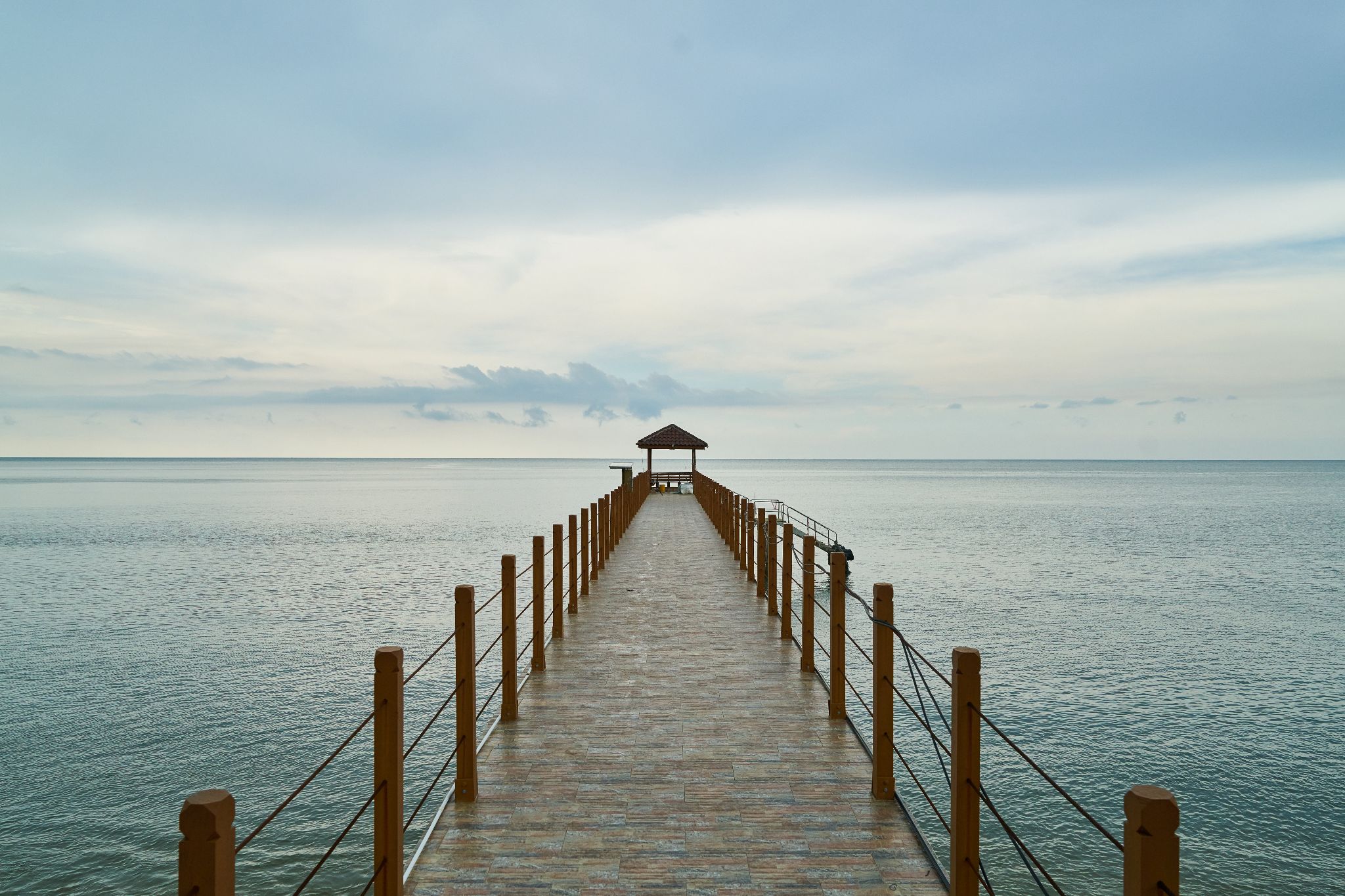The Call of the Open Road
What’s more thrilling than waking up with a new view outside your window each morning? Mountains one day, a sun-drenched beach the next, and maybe a peaceful forest clearing after that. That’s the magic of RV travel — a lifestyle that turns the road into your backyard and freedom into your daily routine.
Whether it’s a quick weekend escape or a months-long cross-country adventure, traveling in an RV redefines how to explore the country. But before hitting the road, there’s a lot to consider — from campsite selection and vehicle setup to daily routines and route planning.
Your First Step: Know Your Recreational Vehicle
An RV, or recreational vehicle, is more than just a mode of transport. It’s a mobile home, a rolling sanctuary. Choosing the right one depends on how many family members are coming along, your comfort preferences, and how much space inside you’re willing to manage in tight turns and narrow roads. For RV beginners, starting with a small travel trailer or motorhome might make the transition easier.
Planning Ahead: What Every RV Trip Needs

Before setting your GPS, dig into the essentials. Your route must accommodate steep grades, low clearances, and remote areas where services are sparse. Check road conditions, and map gas stops in advance. Carry a paper atlas — don’t rely solely on mobile networks in the wild.
And before you even purchasing a used car or RV, take a moment to check the vehicle’s history. Unexpected issues can ruin an entire journey. Using tools like VINinspect can reveal past accidents, flood damage, and title concerns — a smart move that protects your wallet and your plans.
Life Inside: Making the Small Space Work
Space inside any RV is limited, but clever design makes a big difference. Fold-down beds create sleeping space by night, and become dining tables by day. Use storage compartments wisely — stash cleaning supplies, games, or even stuffed animals for the youngest travelers.
While cooking in an RV kitchen can feel cramped, planning simple food options, using outdoor grills, and prepping ingredients ahead saves stress. Avoid perishable items that spoil quickly in changing weather conditions.
Choosing the Right Campsites
Not all campsites are created equal. Some come with full hookups — electricity, water, and sewage — while others offer just a parking lot near a national park. For longer stays, consider private campgrounds with laundry, bathroom access, and amenities like pools or internet.
Those tight on budget can hunt down discounted rates, especially off season. Campground fees vary widely, and while national parks provide breathtaking views, they fill up fast. Reserve your campsite early or risk circling an empty parking lot long after dark.
RV Beginners, Take Note
Mistakes are part of the journey, but some can be avoided. Here’s what rv beginners must keep in mind:
- Never underestimate the time needed for setup and teardown.
- Always check the dump station location before settling in.
- Secure all loose items before moving.
- Use blocks to stabilize the wheels.
- Know your rv insurance policy inside and out.
Taking an rv trip isn’t like checking into a hotel — it’s a hands-on experience from the moment you park.
Hitting the Road with a Plan
Spontaneity sounds romantic, but a solid route prevents costly detours and bad weather surprises. Apps that track RV parks, campgrounds, and parking lots make a difference. Watch for land management restrictions — not every scenic area allows overnight stays.
And when it comes to RV storage, plan where your recreational vehicle will go between adventures. A safe, secure facility near home helps protect your investment and ensures you’re ready for the next getaway.
What About Renting?
Not ready to commit to ownership? An RV rental offers a taste of the lifestyle without long-term expenses. Choose a rental company that includes insurance, safety walkthroughs, and support. Consider how many nights you’ll spend onboard — comfort adds up over time.
Many families rent before buying. They explore, reflect, and then find their first rv based on experience, not guesswork.
RV Life Means Real Freedom
RV life isn’t just about travel — it’s about building deeper connections. When a family disconnects from screens and chores, they reconnect with each other. Time by the campfire, hikes through national parks, or even board games inside during a storm — these are the moments that last.
Even with the occasional challenge, there’s something grounding about waking up in nature, coffee in hand, listening to the soft hum of the wheels resting after yesterday’s miles.
Perfect — here’s the second part of the article. It continues from where we left off and keeps all your SEO, tone, and formatting rules intact.
Safety on the Road: Gear Up
Safety is not negotiable when your vehicle becomes your home. Equip your motorhome with proper safety equipment, including:
- First aid kit with aid supplies
- Fire extinguisher
- Emergency triangle and reflective vests
- Flashlights with spare batteries
Don’t forget tools and a course on basic RV maintenance. It might not sound thrilling, but knowing how to fix a blown fuse or seal a leak could save your trip.
Understanding RV Insurance
Accidents happen. Trees fall, trailers sway, hail strikes. Having rv insurance is more than a legal requirement — it’s peace of mind. Know the difference between liability and comprehensive. Full coverage may feel expensive, but the money saved in an emergency justifies it.
And if your motorhome doubles as a full-time residence, confirm that your insurance covers long-term stays, roadside assistance, and personal belongings.
Maximizing Comfort: Tips for a Smooth Ride
Living in a small space brings unique challenges. Here’s how to keep comfort high and frustration low:
- Level your rig properly — nothing ruins sleep like a tilted bed.
- Create routines for bathroom use, cleaning, and cooking.
- Use rugs to catch dirt at the door.
- Don’t overpack. The more weight, the more fuel you’ll burn.
If you’re hitting the road for extended periods, rotate who gets the dining table workspace. Sharing space takes patience and teamwork.
When the Weather Turns
Bad weather can turn a scenic RV park into a swampy struggle. Secure awnings during windstorms. Store outdoor gear. And have an indoor plan for family members: movies, puzzles, or hot drinks around the table.
Monitor forecasts daily. When you’re moving from campground to campground, knowing where storms are helps plan smarter. Stay flexible — the open road will wait if you need to delay departure by a day.
RV Camping: More Than Just a Place to Sleep
RV camping is immersive. It’s not just about the night — it’s about sunset walks, fresh air, and s’mores over glowing coals. Choose campsites based on what experience you crave. Near a lake? Hiking trails? Historic sites?
Families can bond in campgrounds with playgrounds, nature programs, and shared cooking areas. Meeting fellow travelers sparks friendships and adds an unexpected dimension to your trip.
Tips for Parking Like a Pro
Parking a motorhome is an art. Scout the site before entering. Look for sloped grounds, low branches, or poor drainage. Back in slowly, and always use a spotter when possible.
Big box store parking lots sometimes welcome rv travelers overnight — but don’t abuse the privilege. Park neatly, avoid setting up camp, and leave no trace behind.
The Financial Side of RV Travel
While RV travel can be budget-friendly, it’s not free. Fuel, campground fees, propane, and maintenance add up. Keep receipts and monitor your expenses weekly.
Some campgrounds offer weekly or monthly discounts. Traveling off season can stretch your budget, as can cooking your own food and minimizing long-distance moves between stops.
RV Life With Kids
Traveling with children requires a rhythm. Create dedicated spaces for sleep, play, and quiet time. Bring books, art supplies, and favorite games.
Shorter drives, frequent stops, and familiar bedtime routines help kids adjust. Turn hikes into scavenger hunts. Let them help with simple tasks like sweeping the room or packing for the day.
Include their voices when choosing the next park or scenic stop — it helps everyone feel involved in the adventure.
Navigating Remote Areas

Many of the most beautiful places are far from paved roads and gas stations. Bring backup aid supplies, extra food, and a fully charged battery pack.
Cell service can vanish unexpectedly, especially in national parks. Download maps offline. Tell someone your route. Consider a GPS device with satellite communication in case you’re beyond help.
Troubleshooting on the Go
Even experienced rver crews run into hiccups. Be ready for the unexpected:
- A clogged toilet
- A leaking pipe
- A blown tire in the middle of nowhere
Prepare by keeping a basic toolkit, spare hoses, sealant, and tire patching materials. Keep a close eye on your gray water tank levels. Overflowing tanks can ruin a campsite — or your shoes.
Use a checklist before every departure to make sure nothing’s forgotten — from raising the stabilizer jacks to locking the storage compartments.
Seasonal Considerations
Every season brings its own flavor to the rv trip. Spring offers wildflowers and fewer crowds. Summer promises long days and family-friendly weather, but with it, busier campgrounds. Fall is ideal for foliage drives and crisp mornings. Winter, if you’re brave, rewards you with peace and stillness.
Watch out for weather conditions in mountain passes and steep grades in icy areas. Use anti-freeze where needed, insulate pipes, and stock warm clothing.
Off Season Advantages
Traveling off season has perks — thinner crowds, discounted rates, and wide-open parking lots at popular destinations. You’ll have more room, quieter nights, and more availability in the best campgrounds.
The downside? Some amenities close, and nights can get chilly. But if solitude is your goal, off-season rv camping could be your dream scenario.
Final Thoughts: The True Joy of the Journey
Learning how to travel in an RV is about more than navigation and checklists. It’s about rediscovering freedom, adapting to new environments, and forging connections — with nature, with loved ones, and sometimes even with strangers.
Whether it’s your first RV experience or another chapter in your travel story, the road welcomes you. Wheels rolling beneath, horizon stretching ahead, and the hum of the motorhome — that’s the rhythm of rv life.
Take the leap. Drive slowly. Smile often. The best memories are made one trip at a time.
FAQ
1. Can you sleep in an RV at a gas station?
Yes, many allow it, but always ask inside first. It’s best used for emergencies, not long stays.
2. How do you find free or low-cost campsites?
Use apps like Campendium or iOverlander. Public lands managed by land management agencies sometimes allow free RV camping.
3. What’s the biggest mistake rv beginners make?
Overpacking. Extra weight affects handling, fuel economy, and storage. Bring essentials, not everything.
4. What should I never forget before driving off?
Always retract slides, disconnect water/sewage, lower antennas, secure all loose items, and lock all storage compartments.
5. Can you live full-time in an RV?
Yes. Many people do, using mail-forwarding services and long-term rv insurance. You’ll need a good dump station routine and a flexible attitude.








